
Scientific Program
Plenary Sessions and Speakers
What innovative tools and technologies are transforming how we study the brain and nervous system?
We welcome contributions on advanced imaging techniques, cutting-edge optical approaches to recording and manipulating neural activity, and molecular and computational tools that enable new insights into neural circuit structure, dynamic brain function, and neurodegenerative disease.
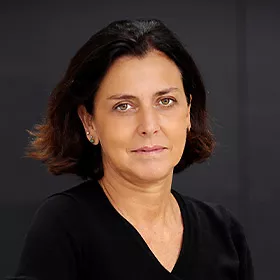
Valentina Emiliani
Plenary Speaker
is a CNRS Research Director at the Vision Institute in Paris, where she leads the Wavefront Engineering Microscopy laboratory, focusing on developing advanced optical techniques—such as computer-generated holography and temporal focusing—for precise, all-optical manipulation and imaging of neural circuits in models like mice and zebrafish. Click here if you want to know more
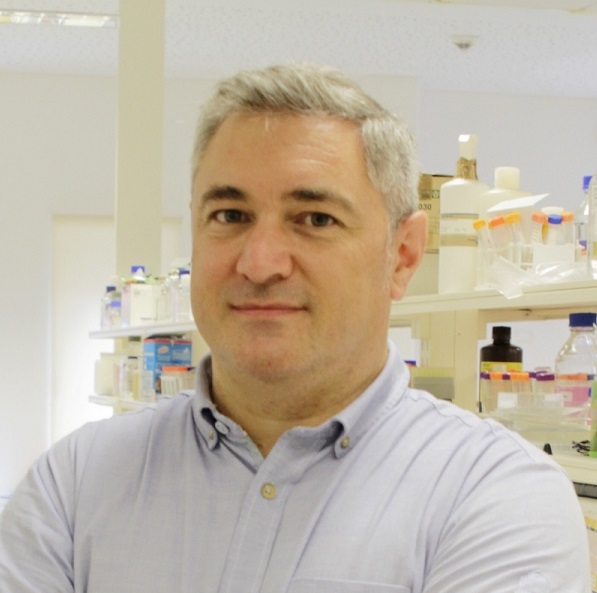
Ramiro Almeida
Invited Speaker
is an Assistant Professor at the Department of Medical Sciences, University of Aveiro. His research centers on developmental neuroscience, particularly the molecular mechanisms underlying axonal regeneration and synaptogenesis. Dr. Almeida’s work aims to understand how neurons (re)establish connections and how these processes can be modulated for therapeutic benefit. Click here if you want to know more
How can AI revolutionize microscopy?
From virtual labelling to automated decision making and data analysis, we invite contributions that allow deeper insights into how smart and AI tools can be used to develop a better understanding of complex biological structures and dynamics. As the demand for non-invasive, high-resolution imaging grows, these cutting-edge label free and machine learning enhanced approaches are transforming how we study biological samples in their native states.
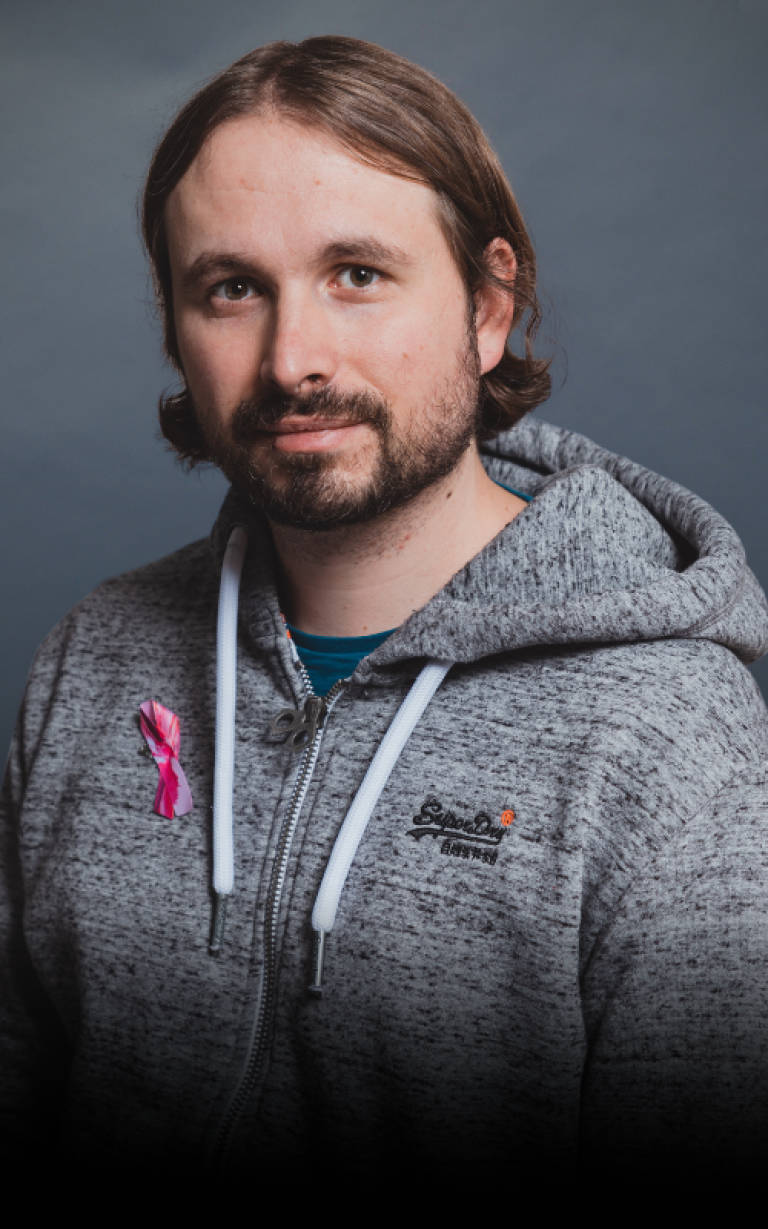
Guillaume Jacquemet
Plenary Speaker
is an Associate Professor at Åbo Akademi University in Turku, Finland, where he leads the Cell Migration laboratory, focusing on the molecular mechanisms of cell adhesion and migration, particularly in cancer metastasis, and developing advanced microscopy and deep-learning-based image analysis tools to study these processes. Click here if you want to know more
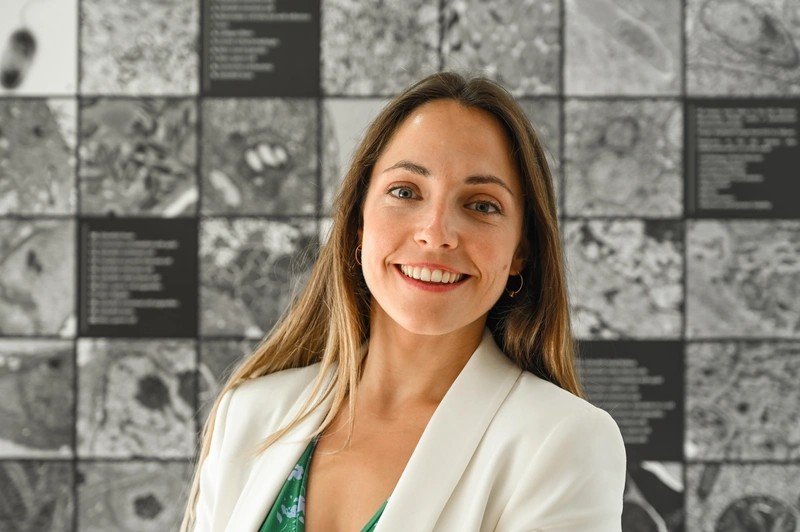
Estibaliz Gómez de Mariscal
Invited Speaker
is an EMBO postdoctoral fellowship at the AI-driven Optical Biology lab in ITQB NOVA, Portugal, expert in biomedical image analysis and AI. Her research focuses on enhancing image-driven scientific discoveries by advancing AI methods and developing open, reproducible, user-friendly tools for microscopy imaging. Click here if you want to know more
How can quantum technologies drive progress in the life sciences?
We invite contributions on quantum imaging and sensing approaches that unravel biological processes at the cellular or molecular level. Topics include quantum contrast agents, ghost imaging, quantum illumination, and point-defect-based sensors for metabolic activity, intracellular thermometry, or magnetic field sensing, among other quantum-enabled tools.
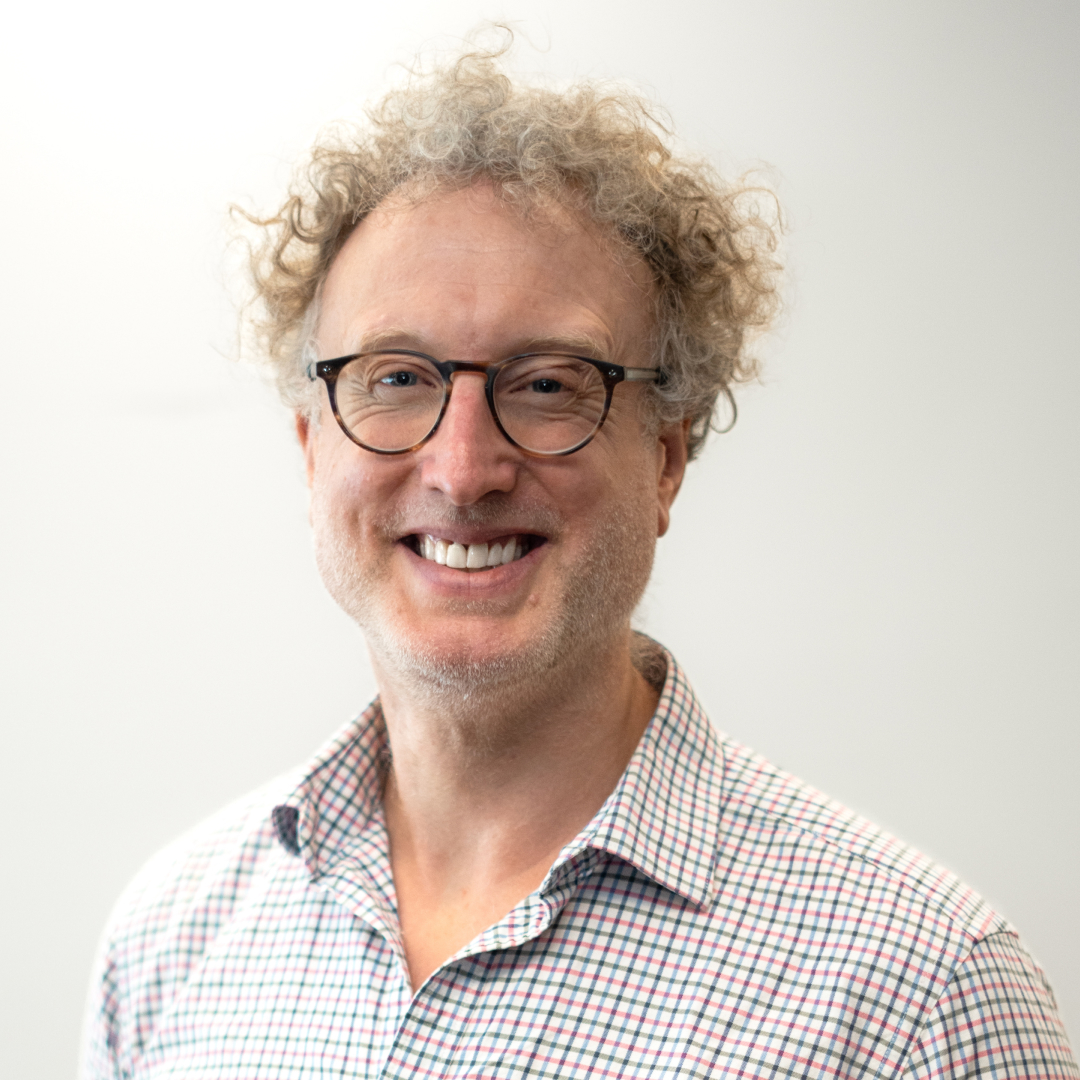
Warwick Bowen
Plenary Speaker
directs the Australian Research Council Centre of Excellence in Quantum Biotechnology (QUBIC) and leads the Quantum Optics Laboratory at The University of Queensland. His research bridges fundamental physics and advanced applied technologies with real-world impact. Key contributions include the development of quantum-enhanced optical microscopes for bioimaging and innovative on-chip optomechanical sensors used in biomedical diagnostics, navigation, and industrial sensing. Click here if you want to know more
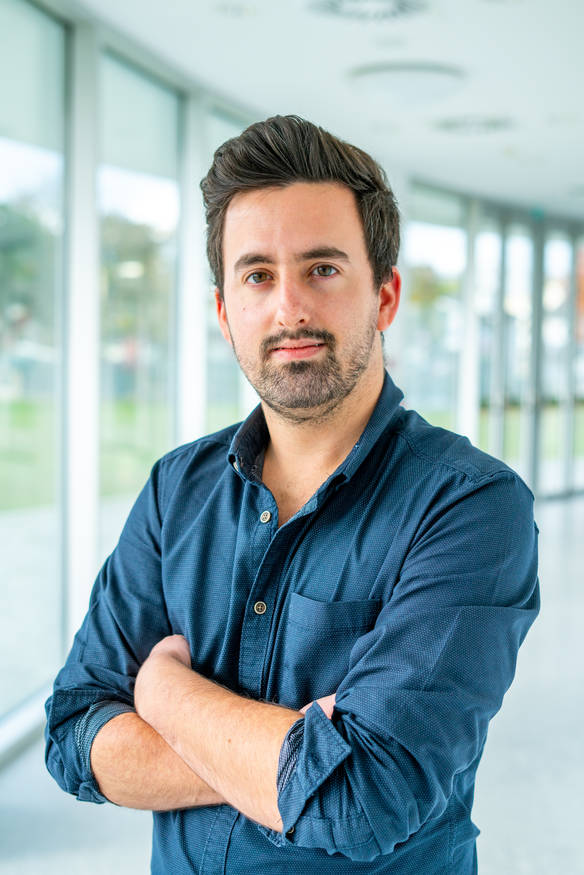
Filipe Camarneiro
Invited Speaker
is a Research Engineer at the International Iberian Nanotechnology Laboratory (INL) in Braga, where he has been developing solutions using Nitrogen-Vacancy centers in diamond for Quantum Sensing – from optical solutions based on confocal and widefield microscopy techniques, to exploring nanodiamonds and bulk diamond substrates for material characterization and bio-applications such as nanothermometry and neuronal research.
How to best characterize 3D models of health and disease?
Complex, three-dimensional cellular and tissue structures are revolutionizing biomedical research and innovative imaging approaches are essential for capturing their intricate architecture and dynamic behaviors. This session invites contributions about state-of-the-art methods for visualizing and analyzing organoids and tissue models to provide exciting new insights into disease progression and therapeutic responses.
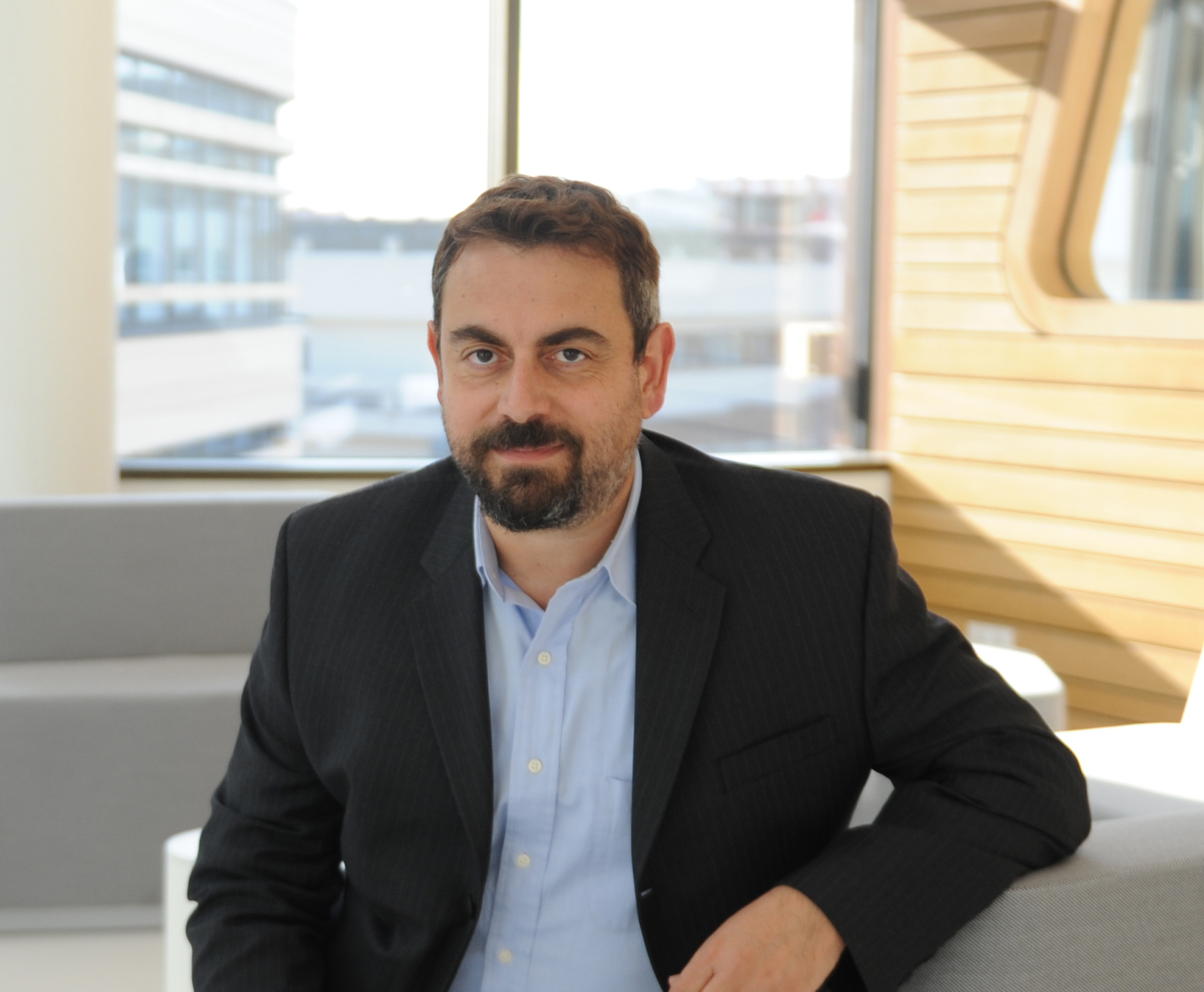
Vasilis Ntziachristos
Plenary Speaker
is Professor of Medicine and Electrical Engineering and the Chair of Biological Imaging at the Technical University of Munich and Director of the Institute of Biological and Medical Imaging at Helmholtz Munich. Prof. Ntziachristos is also currently Director of Bioengineering at the Helmholtz Pioneer Campus and the Head of the Bioengineering Department at Helmholtz Munich. His research focuses on the development of novel optical and optoacoustic imaging, sensing and computational methods for accelerating discovery and advancing well-being by early detection of disease leading to improving prevention, diagnostics and administering more efficient treatment. Click here if you want to know more
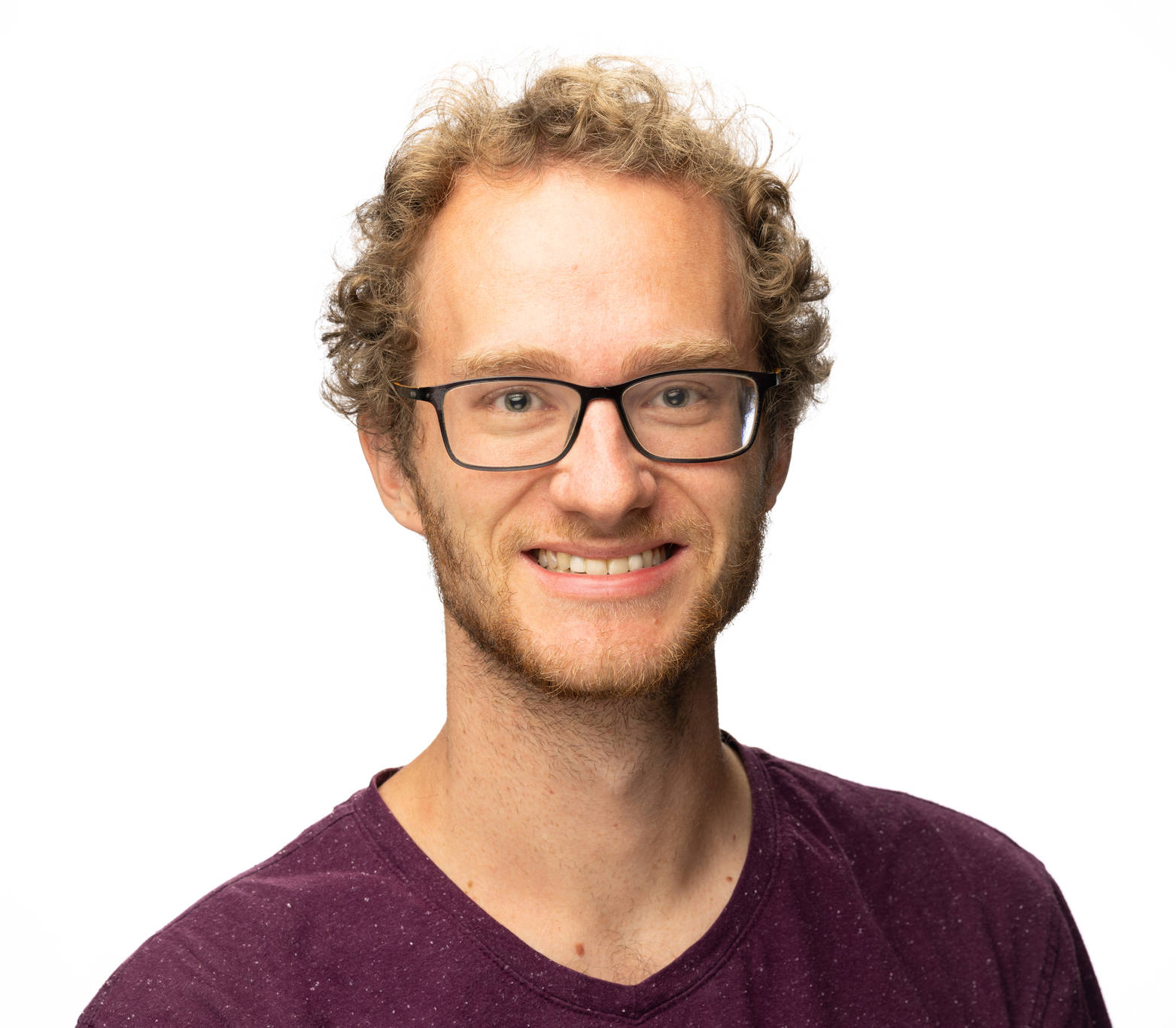
Rory Long
Invited Speaker
is a Bridging Postdoctoral Fellow in the group of Maria Bernabeu at the European Molecular Biology Laboratory Barcelona. His research focuses on the use of 3D microfluidics-based brain microvascular models to uncover pathogenic mechanisms of pediatric cerebral malaria, a severe complication of Plasmodium falciparum infection characterized by blood-brain barrier breakdown. Click here if you want to know more
What are the latest developments in Microscopy?
Discover the latest breakthroughs and emerging trends in microscopy techniques and their diverse applications. This session highlights cutting-edge advancements in imaging technologies, that may range from novel super-resolution methods to multimodal approaches and real-time live-cell imaging. We invite contributions on innovative microscopy technologies and applications across biological and biomedical research.
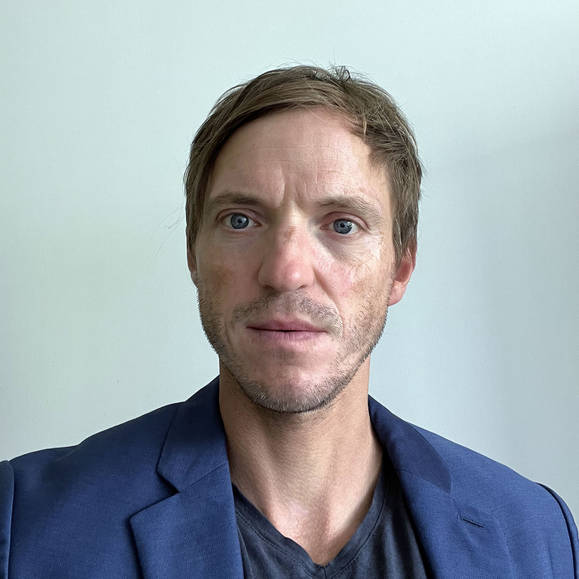
Michael Krieg
Plenary Speaker
is a research professor at the Institute of Photonic Science in Castelldefels/Barcelona and leads the Neurophotonics and Mechanical Systems Biology lab. His work is centred around the different facettes of how mechanical information affects biological function — and has recently pioneered the use of photons as synthetic neurotransmitters by leveraging a functional interface between bioluminescence and optogenetics in neuronal systems. Click here if you want to know more
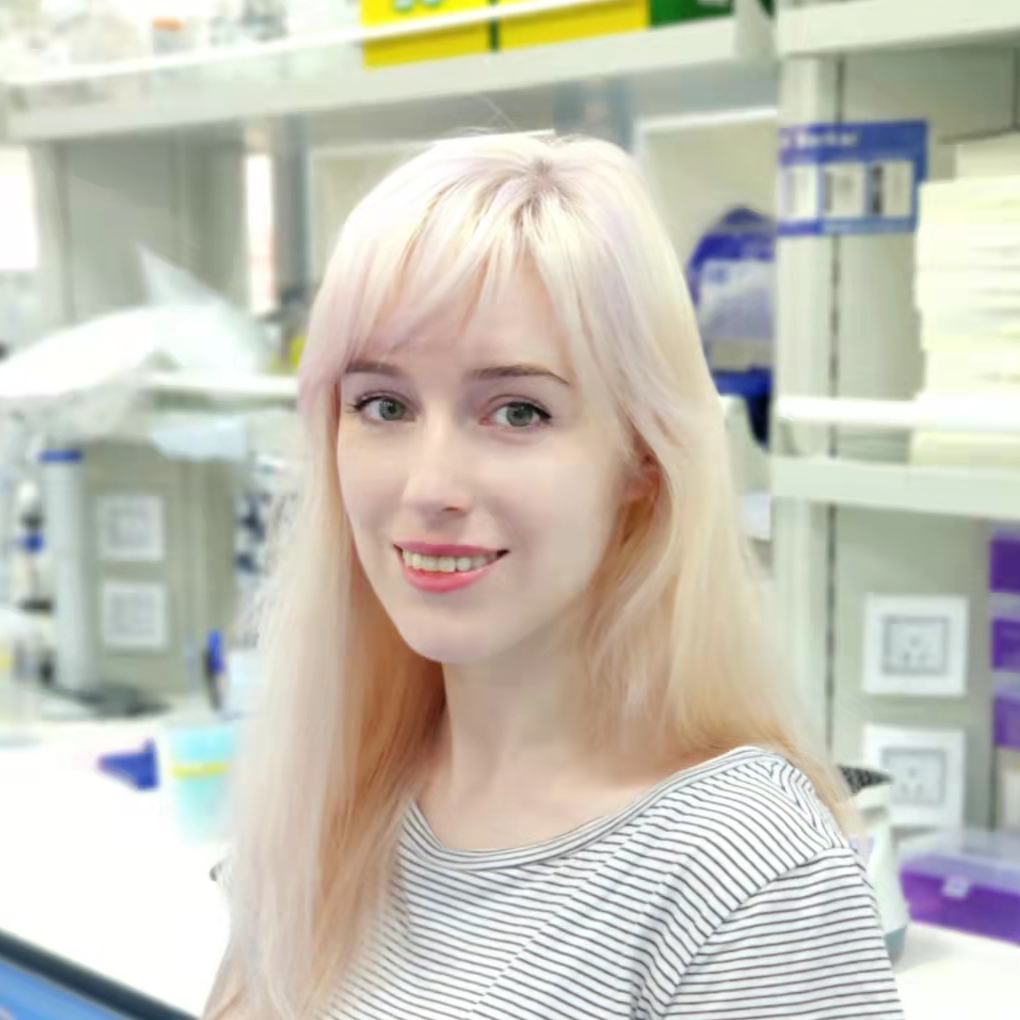
Esther González-Almela
Invited Speaker
is a Marie Skłodowska-Curie Fellow at the Centro Nacional de Biotecnología (CNB-CSIC) in Madrid, Spain. Her research focuses on providing new insights into virus-host interactions and how viruses manipulate nuclear architecture. She is currently leading a project applying advanced imaging approaches to further understand viral infection mechanisms at the nanoscale.
How are AI and bioimage analysis reshaping research workflows and driving new scientific breakthroughs?
We invite contributions on key advances in segmentation, object detection, and denoising, powered by deep learning techniques such as convolutional neural networks. Topics may also include real-time analysis, 3D reconstruction, and multimodal image integration, as well as the growing impact of self-supervised and transfer learning, which enhance learning efficiency from available data to gain deeper biological insights. Throughout this session, we will highlight how BioImage Analysts are at the heart of microscopy transformation, providing the expertise to turn complex image data into valuable insights that drive scientific progress and enhance the impact of biomedical research.
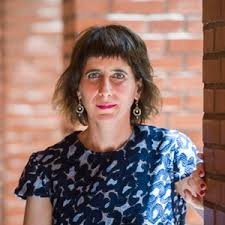
Arrate Muñoz-Barrutia
Plenary Speaker
is a Full Professor at Universidad Carlos III de Madrid. Her research focuses on developing advanced imaging and AI-based methods to improve disease detection, characterization, and therapy, with key contributions to bioimage analysis and open-source tools that support the microscopy and life sciences community. Click here if you want to know more
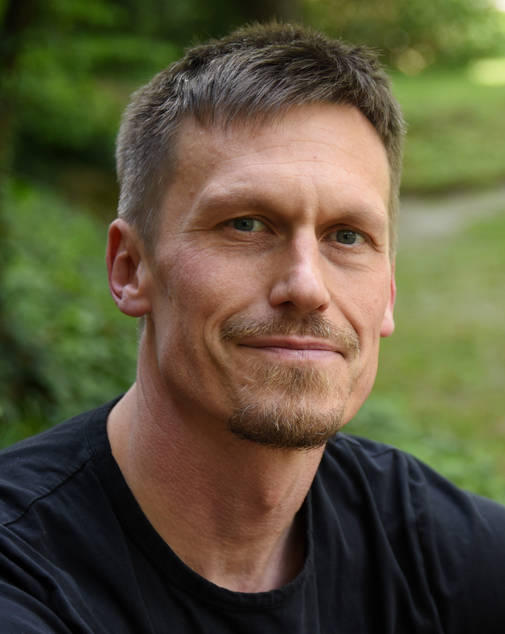
Thomas Bocklitz
Plenary Speaker
is the head of the Photonic Data Science research group at the Leibniz IPHT. In 2023, he was appointed as a full professor of ‘Artificial Intelligence in Spectroscopy and Microscopy’ at the University of Bayreuth, and in 2024, as a professor of ‘Photonic Data Science’ at the University of Jena and the Leibniz IPHT. His main area of research is closely related to the photonic data lifecycle and includes the machine learning and chemometric modelling of photonic data. Click here if you want to know more
Photo credit: Anne Günther, Universität Jena.
Detailed Program
Day 1 – Wednesday, 5 November 2025
| Time | Session |
|---|---|
| 08:00–08:45 | Registration and Poster Setup |
| 08:45–09:00 | Conference Welcoming Session |
| Advanced Tools for Neurosciences | |
| 09:00–09:45 | Wavefront Engineering for Volume Light Control in Nonlinear Neurophotonics Eirini Papagiakoumou on behalf of Valentina Emiliani Institut de la Vision, Sorbonne Université, France Plenary Talk |
| 09:45–10:00 | Reconstructing a Hippocampal Circuit-on-a-Chip to Study Synaptic Dysfunction in Neurodevelopmental Disorders Ramiro D. Almeida iBiMED, University of Aveiro and CNC/CiBB, University of Coimbra, Portugal Invited Talk |
| 10:00–10:15 | A Window with a View to Neurogliovascular Unit Development Vanessa Coelho-Santos ICNAS, CIBIT and FMUC, University of Coimbra, Portugal Selected Talk |
| 10:15–10:30 | Dynamic Signal of Neural Ensembles Encoding Appetitive and Aversive Stimuli in the Brain Carina Soares-Cunha ICVS, University of Minho, Portugal Selected Talk |
| 10:30–10:40 | Poster Flash Talks 1 Bruna Ferreira-Lomba (ICVS, University of Minho, Portugal) Mario Del Rosario (ITQB NOVA, NOVA University Lisbon, Portugal) Ruben B. Freitas (CMEMS, University of Minho, Portugal) |
| 10:40–11:15 | Coffee Break |
| Hot Topics in Bioimage Analysis and AI | |
| 11:15–12:00 | Deep Learning for Quantitative Histology and Biomarker Discovery Arrate Muñoz-Barrutia Univerdad Carlos III de Madrid, Spain Plenary Talk |
| 12:00–12:45 | Automated Image Quality Assessment Methods for Optical Microscopy: Implementation and Practical Applications Thomas Bocklitz Leibniz IPHT and University of Jena, Germany Plenary Talk |
| 12:45–13:00 | Industry-sponsored Research Talk – Telstar Revealing the Nanoarchitecture of NMDA Receptors and Neurexins by STED and MINFLUX Microscopy Joana Ferreira (MIA and CiBB, University of Coimbra, Portugal) |
| 13:00–13:15 | Industry Pitches 1 Miguel Angelo Oliveira (Evident Microscopy, Portugal): Smart Imaging Starts Here: Evident’s Breakthroughs in Microscopy Soren Prag (ZEISS, Germany): Imaging Across Scales: ZEISS Innovations from Super-Resolution to Correlative Microscopy John Pearson (Leica Microsystems, Spain): Taking Spatial Biology into the Third Dimension with SpectraPlex |
| 13:15–14:15 | Lunch Break |
| 14:15–15:00 | Poster Session (Odd Numbers) |
| 15:00–15:45 |
Industry Workshops 1 (Parallel) Evident: Advancing Confocal Imaging: Unlocking Discovery with the FLUOVIEW™ and Next-Generation SilVIR™ Detection (Björn Sieberer, Evident, Germany) Telstar – Bruker: Deep and Ultra-Fast Live Imaging with Bruker’s Ultima 2Pplus Multiphoton (Romina Macco, Telstar – Bruker, Italy) Leica: Taking the Study of Disease Models into the Third Dimension: Multiplex and Spatial Biology (John Pearson & Paco Porto, Leica Microsystems, Spain) Palex: Confocal Multiwell Imaging Made Easy (Screening) (Jordi Recasens, Palex, Spain) ZEISS: Revolutionizing Live Imaging: High-Speed Volumetric Imaging with ZEISS Lightfield 4D (Gerry Sexton, ZEISS, Spain) Miltenyi Biotec: Optimized 3D Imaging for Organoids: Maximize Throughput, Minimize Efforts (Luis Muñiz Menéndez, Miltenyi Biotec, Spain) |
| 15:45–15:50 | Break |
| 15:50–16:35 |
Industry Workshops 2 (Parallel) Evident: Pushing the Limit of Spinning Disk Confocal with the IXploreSpinXL (Wojciech Brutkowski, Evident Scientific, Poland) Telstar – Bruker: Explore the Nanoscale: Deep 3D Imaging with Bruker’s Vutara VXL Super-Resolution (Corentin Rousset, Telstar – Bruker, France) Leica: Taking the Study of Disease Models into the Third Dimension: Gentle 3D Tissue Imaging of Living Tissues (John Pearson & Paco Porto, Leica Microsystems, Spain) Palex: From Conventional to Super-Resolution Microscopy (Elena Saavedra & Tom Sperber, Palex, Spain) ZEISS: Where Speed Meets Detail: Exploring the ZEISS Lattice SIM Family (Soren Prag, ZEISS, Spain) Miltenyi Biotec: Optimized 3D Imaging for Organoids: Maximize Throughput, Minimize Efforts (Luis Muñiz Menéndez, Miltenyi Biotec, Spain) |
| 16:35–17:05 | Coffee Break |
| 17:05–18:05 |
Community Workshops 1 (Parallel) CW#1: Intro to Instrumentation QC in Light Microscopy Gabriel Martins (GIMM and Quality Control WG – PPBI, Portugal) Nadia Haladi (CGR, Spain) Telmo Pereira (NMS, NOVA University of Lisbon, and Quality Control WG – PPBI, Portugal) CW#2: Stretching the Limits: Exploring Biology with Expansion Microscopy Carolina Alves Feliciano and Mario Del Rosario (ITQB NOVA, NOVA University of Lisbon, Portugal) CW#3: Measuring the Impact of an Imaging Core Facility Mariana Carvalho (INL, Portugal) Daniela Aviles (Euro-BioImaging Bio-Hub/EMBL, Germany) |
| 18:05–20:05 | Visit the Exhibition Booths, Concert & Welcome Drinks |
Day 2 – Thursday, 6 November 2025
| Time | Session |
|---|---|
| 08:30–09:00 | Registration and Poster Setup |
| AI & Smart Microscopy | |
| 09:00–09:45 | Studying Cancer Cell Metastasis in the Era of Deep Learning for Microscopy Guillaume Jacquemet Åbo Akademi University, Finland Plenary Talk |
| 09:45–10:00 | Harnessing AI Towards the Limits of Live-Cell Microscopy Estibaliz Gómez de Mariscal ITQB NOVA, NOVA University of Lisbon, Portugal Invited Talk |
| 10:00–10:15 | Napari-ToMoDL: A Python-Based Napari Plugin for Fast and Reliable Tomographic Image Reconstruction Minh Nhat Trinh CCMAR, University of Algarve, Portugal Selected Talk |
| 10:15–10:30 | Impact of Marine Heatwaves on the Intestinal Structure of Adult Small-Spotted Catsharks Sandra Martins Rebocho MARE/ARNET, University of Lisbon, Portugal Selected Talk |
| 10:30–10:40 | Poster Flash Talks 2 João Paulo Silva (INL, CAP/INESC-TEC, and Department of Physics and Astronomy/University of Porto, Portugal) Juan A. Torreño-Piña (ICFO, Spain) Lucía Sánchez-Ruiloba (IIM-CSIC, Spain) |
| 10:40–11:15 | Coffee Break |
| Quantum Bioimaging and Sensing | |
| 11:15–12:00 | Quantum Technology for Biosensing and Imaging Warwick Bowen QUBIC and Queensland Quantum Optics Laboratory, University of Queensland, Australia Plenary Talk |
| 12:00–12:15 | Quantum Sensing Using Nanodiamonds: From Nanoparticle Functionalization for Neuronal Research to Intracellular Thermometry during Cancer Hyperthermia Treatment Filipe Camarneiro INL, Portugal Invited Talk |
| 12:15–12:30 | Optical Imaging of Temperature and Magnetic Phase Transition in Nanoparticles Nuno J. O. Silva CICECO, University of Aveiro, Portugal Selected Talk |
| 12:30–12:45 | Polarization-Sensitive Hong-Ou-Mandel Microscopy for Quantum Imaging Applications Carolina R. Gonçalves Department of Physics and Astrophysics/FCUP and CAP/INESC TEC, Portugal Selected Talk |
| 12:45–13:00 | Industry-sponsored Research Talk – Evident Pushing Boundaries in Biomedical Imaging: Multiphoton Microscopy for In Vitro, Ex Vivo, and In Vivo Applications Pablo Hervella (IDIS de Santiago de Compostela, Spain) |
| 13:00–13:15 | Industry Pitches 2 Julian Bursztyka (Telstar – abberior Instruments, France): STED: Super-Resolution Solutions for Most Challenging Applications Elena Saavedra (Palex, Spain): Take a Look into the Cells’ Souls |
| 13:15–14:15 | Lunch Break |
| 14:15–15:00 | Poster Session (Even Numbers) |
| 15:00–15:45 |
Industry Workshops 3 (Parallel) Evident: Advancing Confocal Imaging: Unlocking Discovery with the FLUOVIEW™ and Next-Generation SilVIR™ Detection (Björn Sieberer, Evident, Germany) Telstar – Bruker: Explore the Nanoscale: Deep 3D Imaging with Bruker’s Vutara VXL Super-Resolution (Corentin Rousset, Telstar – Bruker, Italy) Leica: Taking the Study of Disease Models into the Third Dimension: Gentle 3D Imaging of Living Tissues (John Pearson & Paco Porto, Leica Microsystems, Spain) Palex: Interactive 3D and 4D Image Visualization and High-Throughput Analysis with Imaris (Michael Mahlert, Palex, Spain) ZEISS: X-Ray Microscopy in Science Research (Jörg Lindenau, ZEISS Microscopy, Germany) |
| 15:45–15:50 | Break |
| 15:50–16:35 |
Industry Workshops 4 (Parallel) Evident: Pushing the Limit of Spinning Disk Confocal with the IXploreSpinXL (Wojciech Brutkowski, Evident Scientific, Poland) Telstar – Bruker: Deep and Ultra-Fast Live Imaging with Bruker’s Ultima 2Pplus Multiphoton (Romina Macco, Telstar – Bruker, France) Leica: Taking the Study of Disease Models into the Third Dimension: Multiplex and Spatial Biology (John Pearson & Paco Porto, Leica Microsystems, Spain) Palex: Slide Scanning Microscopy Combined with AI Analysis (Jordi Recasens, Palex, Spain) ZEISS: Unlocking New Dimensions: 2D/3D AI-Driven High-Content Analysis and Deeper Insights in 3D Time-Lapse Analysis with Lightfield4D Technology (Delisa Garcia, ZEISS, United Kingdom) |
| 16:35–17:05 | Coffee Break |
| 17:05–18:05 |
Community Workshops 2 (Parallel) CW#1: Intro to Instrumentation QC in Light Microscopy Gabriel Martins (GIMM and Quality Control WG – PPBI, Portugal) Nadia Haladi (CGR, Spain) Telmo Pereira (NMS, NOVA University of Lisbon, and Quality Control WG – PPBI, Portugal) CW#4: Beyond Conventional High-Content Screening in Microscopy: Considerations, Applications, and Data Analysis Manuel Pérez, María Calvo de Mora, Diego Megías and Isabel Peset (CNIO, Spain) CW#5: Functional Imaging in Practice: Sample Preparation, Stimulus Delivery, and Behavioral Readouts A. Lucas Martins and Catarina Matos (Champalimaud Research, Champalimaud Foundation, Portugal) |
| 18:05–18:10 | Break |
| 18:10–18:55 | PPBI – REMOA Meeting |
| 18:55–19:30 | Break |
| 19:30–22:30 | Conference Dinner |
| 22:30–02:00 | After Hours |
Day 3 – Friday, 7 November 2025
| Time | Session |
|---|---|
| 08:30–09:00 | Registration |
| Microscopy for 3D Models of Health and Disease | |
| 09:00–09:45 | Advances in Optoacoustic Microscopy and Imaging Vasilis Ntziachristos TUM and IBMI, Helmholtz Munich, Germany Plenary Talk |
| 09:45–10:00 | A 3D Brain Microvasculature Model to Explore the Role of Pericytes in Angiopoietin/Tie-2 Alteration During Cerebral Malaria Rory Long EMBL Barcelona, Spain Invited Talk |
| 10:00–10:15 | DHA Priming Reprograms the Metabolism of Human Adipose Mesenchymal Stromal Cells and Improves the Therapeutic Performance of Its Secretome in Translational Studies of Spinal Cord Injury Jonas Campos ICVS, University of Minho, Portugal Selected Talk |
| 10:15–11:00 |
Panel Discussion 1: “Careers in Microscopy” Panelists: Björn Sieberer (Evident, Germany), José Rino (GIMM, Portugal), Ricardo Henriques (GIMM, Portugal) — Parallel User-Developer Workshops — Leica: Using Smart Microscopy and AI for More Efficient Acquisition and Deeper Insight Generation (John Pearson and Jürgen Reymann, Leica Microsystems, Spain and Germany) Palex (Nikon): Smarter Microscopy: Unlocking Easy Automation and Image Analysis with Python and AI (Abril Escamilla, Nikon Europe, Belgium) |
| 11:00–11:30 | Coffee Break |
| Hot Topics in Microscopy Methods and Applications | |
| 11:30–12:15 | From Photons to Function: Real-time Control and Observation of Neural Dynamics in Living Organisms Michael Krieg ICFO, Spain Plenary Talk |
| 12:15–12:30 | Super-Resolution Microscopy Reveals Nanoscale Remodeling of Host Genome Architecture upon Viral Infection Esther González-Almela CNB-CSIC, Spain Invited Talk |
| 12:30–12:45 | Enabling Spontaneous Super-Resolution in Confocal Microscopes Through Super-Linear Emitters Denitza Denkova ICFO, Spain; CNBP and Department of Physics and Astronomy/Macquarie University, Australia Selected Talk |
| 12:45–13:30 |
Panel Discussion 2: “Stronger Together – the Role of Networks” Panelists: Luisa Cortes (CNC, University of Coimbra, Portugal), Maria Calvo (University of Barcelona, Spain), Nuno Moreno (CaixaResearch Institute, Spain) — Parallel User-Developer Workshops — ZEISS: Spatial Biology (Soren Prag, ZEISS, Germany) Evident: Smart Microscopy & AI: Empowering Imaging and Metrology – Expectations, Innovations, and Impact (Elisa Escolà & Björn Sieberer, Evident Microscopy) |
| 13:30–13:45 | Closing Ceremony and Awards |
| 13:45–14:00 | Lunch To Go |
Community Workshops
CWS #1 Intro to Instrumentation QC in Light Microscopy
CWS #2 Stretching the limit: exploring biology with expansion microscopy
CWS #3 Measuring the Impact of an Imaging Core Facility
CWS #4 Beyond Conventional High-Content Screening in Microscopy: Considerations, Applications, and Data Analysis
CWS #5 Functional imaging in practice: sample preparation, stimulus delivery, and behavioral readouts
Industry Workshops
EVIDENT
TELSTAR
LEICA
PALEX
ZEISS
MILTENYI
User-Developer Workshops
Join us for the User–Developer Workshop, a dynamic session designed to bridge the gap between microscopy companies and end-users. This interactive forum offers a unique opportunity to exchange insights, address real-world challenges, and shape the future of advanced microscopy together. Whether you’re a researcher/ facility staff member seeking innovative solutions or a developer aiming to better understand user needs, this workshop is the ideal setting to share feedback, spark collaboration, and drive meaningful progress in the field. Don’t miss the chance to be part of a community conversation that defines the next generation of microscopy technologies
